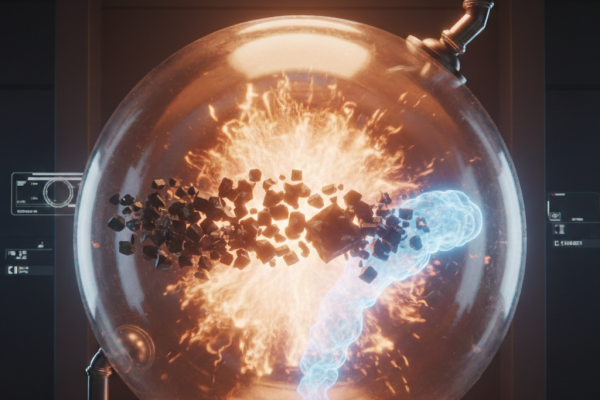July 30th, 2025 | 07:10 CEST
Made in the USA: Bayer caught in a customs trap? What about Argo Graphene Solutions and BASF?
The new US-EU trade pact is creating deep rifts. While many European exports are groaning under the 15% tariffs, exceptions and location strategies are deciding who the winners and losers will be. Bayer and BASF are facing rising costs, but their innovative strength offers the key to limiting the damage. Argo Graphene Solutions, on the other hand, is strategically well-protected thanks to its US subsidiary and can take a relaxed approach to the customs issue. Those who identify the right levers now will turn trade risks into returns. Three companies, three ways through the tariff jungle. We take a look at how each is dealing with the new landscape.
time to read: 4 minutes
|
Author:
Armin Schulz
ISIN:
BAYER AG NA O.N. | DE000BAY0017 , ARGO GRAPHENE SOLUTIONS CORP | CA04021P1018 , BASF SE NA O.N. | DE000BASF111
Table of contents:
Author
Armin Schulz
Born in Mönchengladbach, he studied business administration in the Netherlands. In the course of his studies he came into contact with the stock exchange for the first time. He has more than 25 years of experience in stock market business.
Tag cloud
Shares cloud
Bayer – In the customs storm
The new US tariffs of 15% on EU goods are hitting Bayer hard, especially pharmaceutical and agricultural chemical exports from Europe. Products manufactured in European plants and delivered to the US are becoming significantly more expensive. **This is putting pressure on margins and could reduce competitiveness in this key market. Goods manufactured locally in North America are not affected. Industry is warning of considerable burdens, and Bayer is increasingly motivated to move production closer to key sales markets in order to avoid customs traps.
The core pharmaceuticals business remains Bayer's driving force. New cancer and kidney drugs are driving growth, while established blockbusters such as the blood thinner Xarelto are facing pressure from generics. A slight decline in revenue is expected for 2025. The pipeline offers some hope: regulatory decisions on key candidates, such as a higher-dose version of the eye therapy Eylea in Europe, are pending. Analysts see solid performance but less potential for surprises than in the past.
The agricultural business is undergoing a radical transformation. Bayer is aiming for additional revenue of over EUR 3.5 billion and an EBITDA margin in the mid-20% range by 2029. To this end, production in Germany is being streamlined. Frankfurt is closing, while Dormagen and Knapsack are focusing on innovative products as standard active ingredients are phased out in response to cheap competition from Asia. Under CEO Bill Anderson, whose contract was recently extended, Bayer is focusing on five priorities: pharmaceutical innovation, profitability in agriculture, reducing bureaucracy ("dynamic shared ownership"), debt reduction, and US legal risks. The tariff shock comes at an unfavorable time, but highlights the urgency of more flexible production networks. The share price currently stands at EUR 28.76.
Argo Graphene Solutions – A smart revolution in building materials
Graphene is considered one of the most promising nanomaterials. It is an atom-thin carbon lattice that is exceptionally light yet 100 times stronger than steel. Argo Graphene Solutions (formerly Argo Living Soils) is focusing specifically on integrating it into concrete and asphalt. The aim is to make buildings significantly more stable and earthquake-proof, as well as reduce material volumes. This addresses a core problem in the construction industry, which is responsible for around 8% of global CO2 emissions. Initial studies show that graphene-modified building materials can increase compressive strength by up to 30% and significantly reduce the need for cement, a major source of emissions.
On July 8, Argo opened a distribution and mixing center in Kenner, Louisiana. The location near the port of New Orleans offers ideal logistics conditions for the US market. A key factor is the cooperation with local construction company Landry Construction, which will handle storage, mixing, and distribution of the graphene-enriched concrete and asphalt. Through its US subsidiary, Argo Green Concrete Solutions, the Company also operates independently of potential US customs duties. The appointment of construction veteran Wilbert J. Landry Jr., who has over 40 years of industry experience, to the board highlights the focus on operational excellence and market development.
The timing is ideal. According to a G20 study, USD 3.5 trillion in infrastructure investment will be needed annually by 2040. At the same time, regulatory pressure for sustainable construction is growing. Argo is positioning itself here as a technology provider in a billion-dollar market with a clear, unique selling point. Its graphene-optimized materials combine higher performance with a reduced carbon footprint. The global market for sustainable building materials could grow to over USD 1 trillion by 2032. While its US expansion is underway, Argo is also working on EU certification. The upcoming phase of commercial scaling will be decisive. At the beginning of April, the share price shot up to CAD 1.02 and has been consolidating since then. It is currently trading at CAD 0.77.
BASF – Between tariff pressure and strategic countermeasures
The new US tariffs on EU imports are also causing problems for BASF. With a base rate of 15% for many chemical products, there is noticeable pressure, especially for specialized exports from Europe. However, the Company has taken precautions. Over 80% of its US revenue comes from local production. This shields BASF much better than many purely export-oriented DAX companies. The direct effects therefore remain manageable, as the Company itself emphasizes. The greater uncertainty lies in the indirect effects, such as a general slump in transatlantic trade or complex exemptions that are still being negotiated.
The second quarter underscores the tense situation. Revenue fell to EUR 15.77 billion, down 2.1% year-on-year. The main reasons were unfavorable exchange rates and falling sales prices in the core business. On a positive note, volumes sold rose, driven by Agricultural Solutions and Surface Technologies. EBITDA before special items was slightly below the previous year at EUR 1.77 billion. Free cash flow improved to EUR 530 million, demonstrating effective cost discipline. Given the ongoing pressure, primarily from tariffs and slower global industrial growth, BASF lowered its full-year EBITDA forecast to between EUR 7.3 billion and EUR 7.7 billion.
BASF is not just reacting defensively. The Company is pushing ahead with targeted initiatives to strengthen resilience and growth. A global framework agreement with battery giant CATL for cathode materials underscores the focus on future technologies. At the same time, the Electronic Materials business is being strategically realigned, with global leadership now in Taiwan. Portfolio adjustments are also continuing. After withdrawing from the joint venture in Xinjiang, BASF secured sole control of Alsachimie. This strengthened the group's polyamide 6.6 division and its European base. The message is clear: despite headwinds, the Company is investing in key areas. The share is currently available for EUR 44.53.
The new transatlantic trade conflict is testing the resilience of European corporations. Bayer is struggling with significant margin losses due to 15% US tariffs on pharmaceutical and agricultural exports, which is increasing the urgency of production relocations. Argo Graphene Solutions, on the other hand, is protected thanks to its US subsidiary and distribution partnership in Louisiana, elegantly circumventing tariff risks. BASF is mitigating the direct impact of tariffs through high local production in the US, but is actively countering indirect trade risks with portfolio adjustments and investments in the future.
Conflict of interest
Pursuant to §85 of the German Securities Trading Act (WpHG), we point out that Apaton Finance GmbH as well as partners, authors or employees of Apaton Finance GmbH (hereinafter referred to as "Relevant Persons") may hold shares or other financial instruments of the aforementioned companies in the future or may bet on rising or falling prices and thus a conflict of interest may arise in the future. The Relevant Persons reserve the right to buy or sell shares or other financial instruments of the Company at any time (hereinafter each a "Transaction"). Transactions may, under certain circumstances, influence the respective price of the shares or other financial instruments of the Company.
In addition, Apaton Finance GmbH is active in the context of the preparation and publication of the reporting in paid contractual relationships.
For this reason, there is a concrete conflict of interest.
The above information on existing conflicts of interest applies to all types and forms of publication used by Apaton Finance GmbH for publications on companies.
Risk notice
Apaton Finance GmbH offers editors, agencies and companies the opportunity to publish commentaries, interviews, summaries, news and the like on news.financial. These contents are exclusively for the information of the readers and do not represent any call to action or recommendations, neither explicitly nor implicitly they are to be understood as an assurance of possible price developments. The contents do not replace individual expert investment advice and do not constitute an offer to sell the discussed share(s) or other financial instruments, nor an invitation to buy or sell such.
The content is expressly not a financial analysis, but a journalistic or advertising text. Readers or users who make investment decisions or carry out transactions on the basis of the information provided here do so entirely at their own risk. No contractual relationship is established between Apaton Finance GmbH and its readers or the users of its offers, as our information only refers to the company and not to the investment decision of the reader or user.
The acquisition of financial instruments involves high risks, which can lead to the total loss of the invested capital. The information published by Apaton Finance GmbH and its authors is based on careful research. Nevertheless, no liability is assumed for financial losses or a content-related guarantee for the topicality, correctness, appropriateness and completeness of the content provided here. Please also note our Terms of use.




